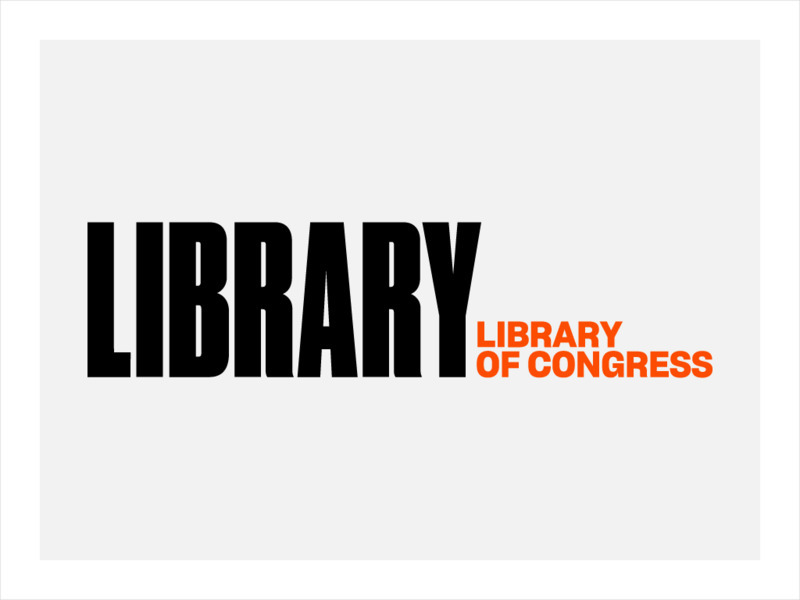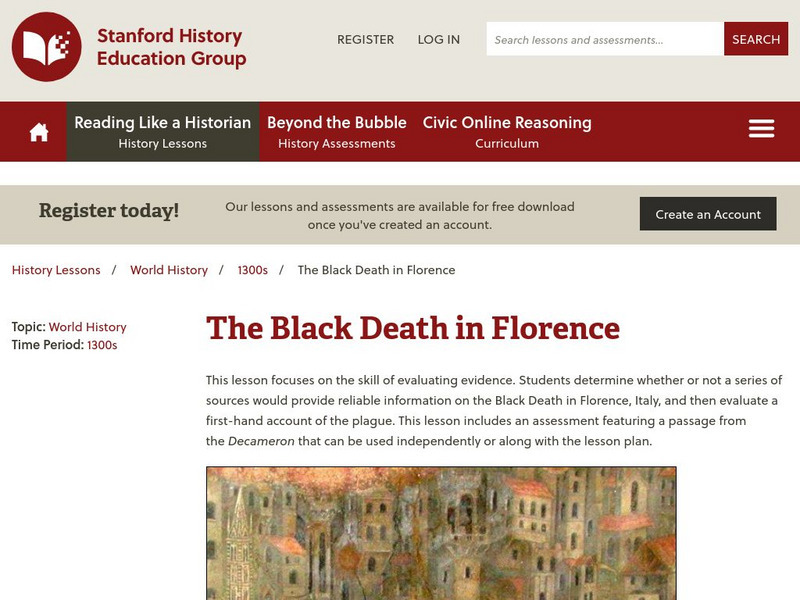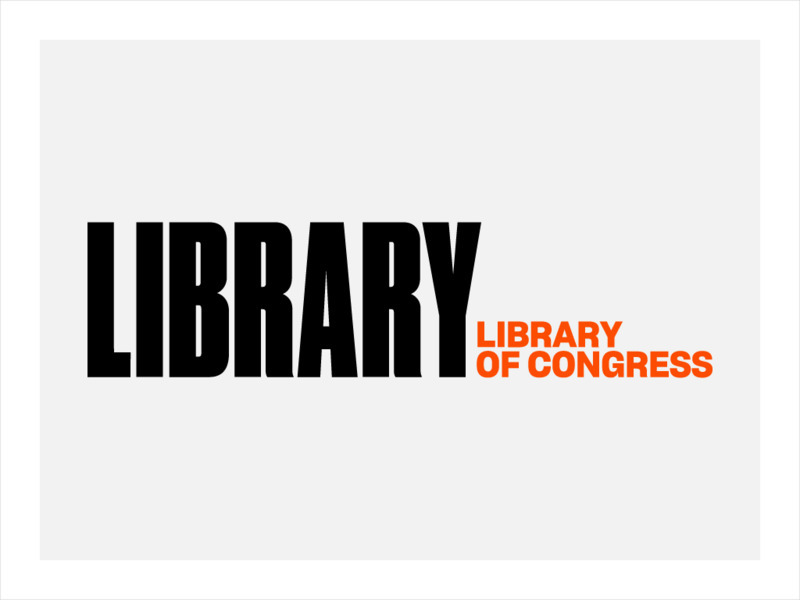Curated OER
Presidential Eligibility
Students examine what requirements determine who can and can't run for president.
Huntington Library
Huntington Library: Using Primary Sources in the Classroom [Pdf]
This instructional activity provides guidelines for teaching students how to use primary sources such as images, text, or statistics (e.g., maps, census). Includes a document analysis worksheet.
Library of Congress
Loc: For Teachers: Classroom Materials Using Primary Sources
This excellent teacher resource features lessons that use primary source documents in an engaging way. Included are lesson plans created by teachers, themed resources, primary source sets, presentations and activities, and collections...
Alabama Department of Archives and History
Adah: Using Primary Sources in the Classroom: Slavery Unit
A website with lesson plans for various grade levels on slavery, using primary sources.
Internet History Sourcebooks Project
Fordham University: Medieval Sourcebook: History Through Primary Sources
This site from the Medieval Sourcebook answers the question: Why Study History Through Primary Sources? It provides complete information, a list of review questions, and bibliography information.
Library of Congress
Loc: Teachers: Using Primary Sources
The Library of Congress provides teachers with a framework that will help integrate primary sources into all areas of the curriculum. Sections include "Why to Use Primary Sources," "Citing Primary Sources," and "Finding Primary Sources."
Library of Congress
Loc: For Teachers: Analyzing Primary Source Documents
These student worksheets and activities help students analyze many different types of primary source documents. Life histories, objects, and photographs are all used to engage students.
Library of Congress
Loc: Teachers: Personal Stories and Primary Sources
Students will explore the value of personal stories and first-hand accounts when exploring history, in this case, the events of the early twentieth century, which included World War I and the Great Depression. Through this five-unit...
Smithsonian Institution
Smithsonian: Engaging Students With Primary Sources
This reference guide is designed to highlight the benefits of using primary source materials in any classroom and to provide the teacher with practical suggestions and examples of how to do this. It includes a bibliography and links to...
Stanford University
Stanford History Education Group: The Black Death in Florence
[Free Registration/Login Required] Website with "reading like a historian" lessons about the Black Death in Florence for teachers using primary resources in the classroom.
University of California
Cal Heritage Collection: Using Primary Sources
This resource covers what primary sources are, where we can find them, and how we can assess them in the classroom.
University of California
Uc Irvine: Distinguishing Between Primary & Secondary Sources
This site has an online quiz to test your knowledge of primary and secondary sources.
Library and Archives Canada
Nlc: Defining Primary and Secondary Sources
Libraries and archives hold documents and books that can be used for your research projects. Learn how to divide and identify them into primary and secondary sources in this tutorial.
Library of Congress
Loc: Abraham Lincoln Primary Source Set
The Library of Congress presents Abraham Lincoln's Primary Source Set. Provides numerous examples of primary documents such as handwritten letters to Mary Todd Lincoln, drafts of speeches, and auditory examples of Lincoln's speech at...
Rock and Roll Hall of Fame
Rock & Roll Hall of Fame: Sti Les. 8: Using Rock as Primary Source Material
I-Feel-Like-I'm-Fixin'-To-Die-Rag' by Country Joe McDonald has been played with great success in classrooms for over twenty years. While it conveys literary elements such as theme, point of view, and irony, it also functions as an...
Other
Dwellings: The Message of Houses and Their Contents, 1780 1820
Architectural styles of the times reflected the economic status and taste of the individuals who owned the houses. As this turn of the century proceeded from 1780 to 1820, many changes occurred in communication, transportation,...
Library of Congress
Loc: Teachers: Out of the Dust: Visions of Dust Bowl History
Primary sources, in addition to Karen Hesse's award-winning historical fiction "Out of the Dust", guide students as they explore the the Dust Bowl and its effect on school life, community, family, and agriculture.
Cyberbee
Cyberbee: Election Lessons
These Election Lessons contain a variety of activities to use in your classroom, including a history of campaign buttons. Many of the links use primary sources from the Library of Congress.
Other
Time Travelers: Teaching American History in the Northwest
This amazing resouce is actually a set of three courses in teaching American history of the Northwestern U. S. from the 1700s to the year 2000. Each course is fifteen weeks long. But the course is laid out so that you can browse any...
The Newberry Library
Newberry Library: Art of Conflict: Portraying American Indians, 1850 to 1900
Lesson uses digitized primary source material to examine the portrayal of American Indians in art between 1850 and 1900. Classroom activities and questions for discussion included.
Library of Congress
Loc: Family Customs Past and Present: Exploring Cultural Rituals
In this lesson, learners will use photos, documents, and music from the Library's digital collection. Then they will students investigate rituals and customs of various cultures.
CommonLit
Common Lit: "Excerpt From Trail of Tears Diary" by Jobe Alexander & Mary Hill
CommonLit.org is a wonderful resource to use in a Language Arts classroom. Each story or article is accompanied by guided reading questions, assessment questions, and discussion questions. In addition, students can click on words to see...
ReadWriteThink
Read Write Think: Researching Information: Comparing Electronic and Print Texts
This lesson allows middle schoolers to compare and contrast print text structure with that of an online site. Students work together and use worksheets in comprehending the informational text. CCSS.ELA-Literacy.WHST.6-8.7 Conduct short...
PBS
Now on Pbs: Lesson Plan: Global Warming
Conduct research using a variety of primary sources to explore perspectives in the global warming debate.



![Huntington Library: Using Primary Sources in the Classroom [Pdf] Lesson Plan Huntington Library: Using Primary Sources in the Classroom [Pdf] Lesson Plan](https://d15y2dacu3jp90.cloudfront.net/images/attachment_defaults/resource/large/FPO-knovation.png)













